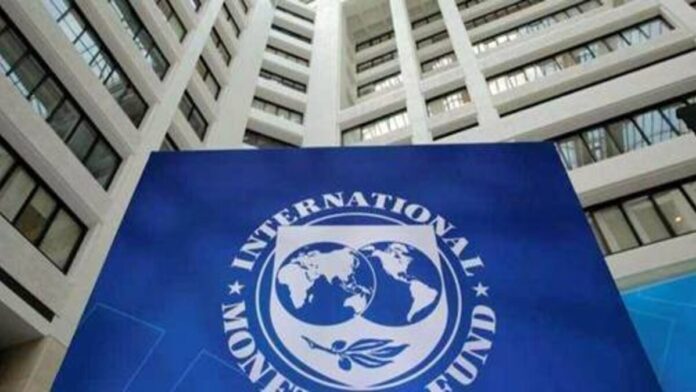ISLAMABAD: While appreciating Pakistan’s recent achievements regarding reforms in government institutions, the International Monetary Fund (IMF) has asked Pakistan to accelerate the much-needed structural reforms in the country.
In its second, third, fourth, and fifth reviews under the Extended Fund Facility (EFF) to Pakistan, the IMF has said that higher growth, investment, and job creation will crucially depend on addressing the long-standing structural weaknesses.
“An uneven playing field for State-owned Enterprises (SOEs) and private companies, corruption, and red tape (especially excessive regulations and licensing requirements, obstacles to paying taxes, and difficulties trading across borders and registering property) remain a drag on productivity, investment, and the development of a vibrant private sector that can create high-quality jobs for a growing labour force,” noted the IMF.
According to the staff report of the international lending agency prepared on March 24 for the executive board’s consideration and following discussions with the officials of Pakistan on economic developments and policies under the programme, the IMF appreciated recent achievements of the government which offer a good basis to accelerate the structural reforms.
The report welcomed recent steps, encouraged continued reliance on extensive technical assistance (TA) from development partners to mitigate capacity constraints, and identified follow-up measures with the authorities in three areas which included enhancing SOEs’ governance, transparency, and efficiency, boosting the business environment, job creation, green development and fostering governance and the control of corruption.
As per the report, the authorities had submitted a new law in March this year to the parliament aiming to define a rationale for state ownership, ensuring commercially sound SOE operations and regulating oversight and ownership arrangements. The preparation of the law benefited the IMF, which now also helps advance the authorities’ ongoing efforts to define a new ownership policy, amend several SOEs’ Acts, and operationalise a central monitoring unit within the Ministry of Finance by the end of summer 2021.
In March, the Pakistani authorities also published a classification of all federal SOEs into those remaining under state ownership and those for sale/liquidation. On that basis, the authorities are now gradually planning to reduce the footprint of the state in the economy to foster efficiency and reduce fiscal risks.
In this regard, the divestment of two LNG power plants and two small public banks is already at an advanced stage.
Regarding boosting the business environment, job creation, and green development, the IMF was informed that the current priorities of the government include simplifying processes to start businesses and approving FDI by reducing regulations and streamlining red tape. In addition, efforts focus on facilitating trading across borders by advancing further the ongoing enhancement in customs efficiency and simplifying paying taxes through a new simple and fully automated payment system, which would also help boost the formal private sector.
Moreover, the Companies Law was amended in May 2020 to foster startups while also attracting innovators, including from abroad. “However, to expand Pakistan’s information technology, digitalisation and outsourcing sectors going forward, it will also be important to invest more in education and human capital, improve product market access, and increase information and communications technology (ICT) adoption,” the IMF was told
The IMF has also been informed about the implementation of the national tariff policy. Tariff rationalisation aims to reduce the level of protection while also reducing input costs to promote competition, exports, and domestic production for import substitution purposes.
The international lending agency was further informed about the National Electric Vehicle Policy which was being implemented to provide a framework to achieve ambitious targets for the sale of electric cars until 2030, with the aim to reduce Pakistan’s GHG emissions and fuel import bill, and to promote industrial growth and job creation through new investments and the introduction of new technologies.
The IMF was told that for strengthening the effectiveness of anti-corruption institutions, the priority measures of government include the establishment of an asset declaration system by June-end this year, with a focus on high-level public officials. Other measures include publication of the second review cycle report under the UN Convention against Corruption (UNCAC) and review of the institutional framework for Pakistan’s anti-corruption institutions by international experts.
Efforts to enhance international anti-corruption cooperation and recover stolen assets abroad would also be increased.
Another major commitment of Pakistan regarding the loan programme was to enhance the use of Anti-Money Laundering (AML) tools to support anti-corruption efforts. The IMF had said that financial institutions should be effectively supervised to comply with due diligence obligations for politically exposed persons and suspicious transaction reporting. Whereas the effectiveness of Pakistan’s financial intelligence unit should be enhanced, and its membership to the Egmont Group be pursued.





Usama